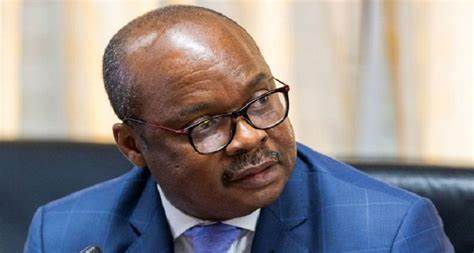About eight banks [names withheld] are highly exposed to the Government of Ghana securities, particularly bonds and could therefore be impacted significantly by the Debt Exchange Programme.
According to the November 2022 Ghana Fixed Income Market report, the banks (four foreign and four local) together controlled about 83.91% of the debt market share.
They traded a significant volume of bonds and bills on the bond market in the month of November 2022, despite a looming debt restructuring programme.
The Debt Exchange may affect their liquidity position, but will depend on their balance sheet size.
However, the four foreign banks may in the worst-case scenario be salvaged by their parent companies.
Also, six leading investments banks are also highly exposed to government of Ghana securities. Together, they controlled 89.13% of the debt instrument market.
International rating agencies, Fitch and Moody’s recently downgraded some banks operating in Ghana.
They argued that the downgrade of the banks follows the downgrade of Ghana's Long-Term IDRs as the banks' standalone credit profiles are closely linked to that of the sovereign (Ghana).
According to the rating agencies, this reflects the concentration of their operations within Ghana, strong reliance on sovereign-derived income and high exposure to the sovereign relative to capital.
They added that the sovereign securities exposure is largely in local currency but the banks have moderate holdings of Ghanaian sovereign eurobonds.
Banks investments in long term debt instruments increase to 81.9%
According to the Bank of Ghana’s October 2022 Monetary Policy Report, securities (long-term debt instruments) remained the largest component of banks’ investment portfolio as of the end-of August 2022.
The share of securities picked up further to 81.9% in August 2022, from 70.6% in August 2021. On the other hand, following the contraction in short-term bills this year, the share of short-term bills in total investments declined to 17.8% from 29.1%. The share of equity investments remained flat at 0.3 percent during the period under review.
Government to set up ¢15bn stability fund for banks
The government on December 7, 2022 announced the establishment of a stability fund - the Ghana Financial Stability Fund with a target size of ¢15 billion.
The Fund to be provided by the Government of Ghana and its development partners will provide liquidity to financial institutions that participate fully in the Debt Exchange.
“All financial institutions (banks, SDIs, pension schemes, collective investment schemes, fund managers, broker/dealers, insurance firms) that fully participate in the Debt Exchange can access the GFSF for augmented liquidity support, with effect from the date of completion of the Debt Exchange”, the statement disclosed.
The Fund will be managed by the Bank of Ghana under unique operational guidelines being developed by the Financial Stability Council.
Latest Stories
-
I want to focus more on my education – Chidimma Adetshina quits pageantry
1 hour -
Priest replaced after Sabrina Carpenter shoots music video in his church
1 hour -
Duct-taped banana artwork sells for $6.2m in NYC
2 hours -
Arrest warrants issued for Netanyahu, Gallant and Hamas commander over alleged war crimes
2 hours -
Actors Jonathan Majors and Meagan Good are engaged
2 hours -
Expired rice saga: A ‘best before date’ can be extended – Food and Agriculture Engineer
2 hours -
Why I rejected Range Rover gift from a man – Tiwa Savage
2 hours -
KNUST Engineering College honours Telecel Ghana CEO at Alumni Excellence Awards
2 hours -
Postecoglou backs Bentancur appeal after ‘mistake’
3 hours -
#Manifesto debate: NDC to enact and pass National Climate Law – Prof Klutse
3 hours -
‘Everything a manager could wish for’ – Guardiola signs new deal
3 hours -
TEWU suspends strike after NLC directive, urges swift resolution of grievances
3 hours -
Netflix debuts Grain Media’s explosive film
3 hours -
‘Expired’ rice scandal: FDA is complicit; top officials must be fired – Ablakwa
4 hours -
#TheManifestoDebate: We’ll provide potable water, expand water distribution network – NDC
4 hours

